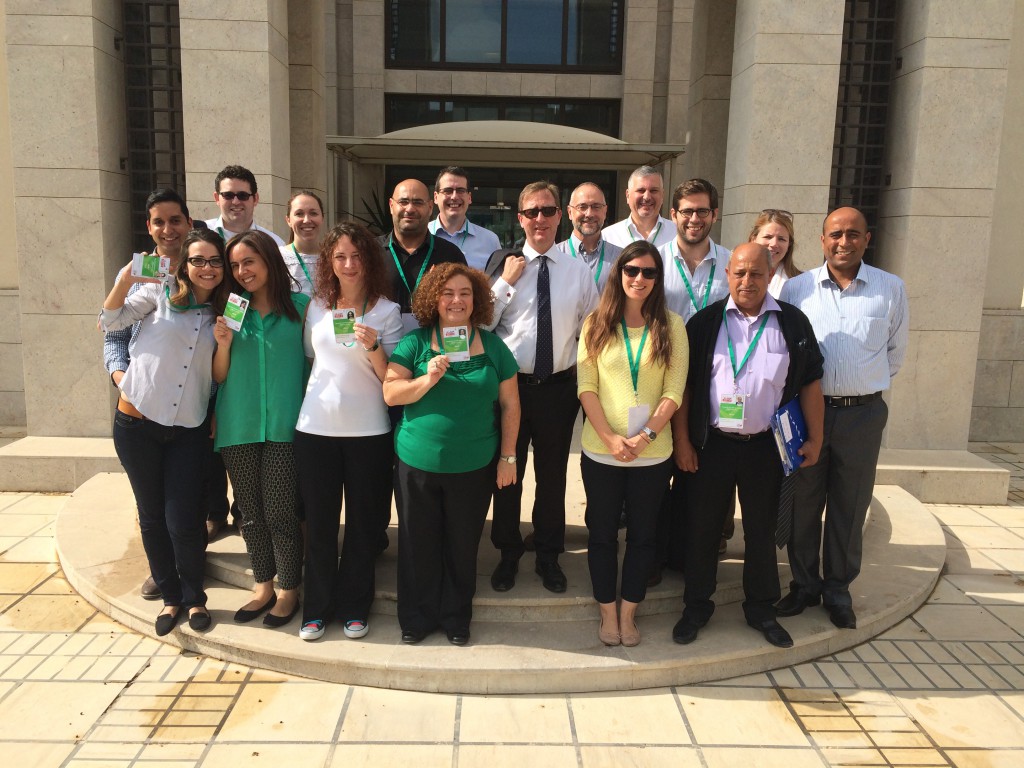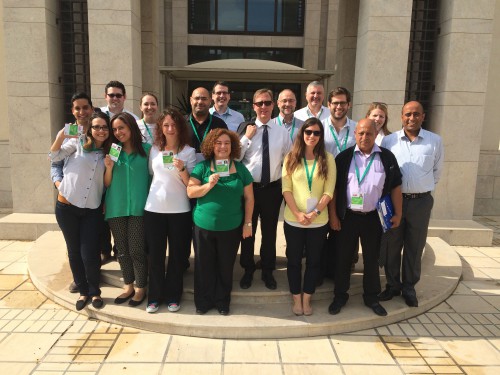3rd November 2014 Tunis, Tunisia
What it feels like being part of a historic event: Tunisia’s parliamentary elections 2014

By: Emma Kouki
On 26th October, Tunisians went to the polls in their first democratic legislative elections. Tunisia’s path to democracy has been a long, arduous process. After the Revolution in 2011, Tunisia has taken the right steps in securing a democratic political sphere; where one has the choice of choosing the party that speaks to them-something which was not possible during the Ben Ali era.
Tunisia’s legislative elections were a landmark in the country’s history. Voter turnout was at 62% which was higher than expected and this showed the will of the Tunisian people to exercise their democratic right to vote. International NGOs and the EU have responded positively to the elections; commending the Tunisian electoral authority ISIE and observers on a fair, free and transparent election. There was a strong security force presence, with the Army, Police and National Guard patrolling outside the polling stations but not interfering with the process.
The atmosphere on Election Day was buzzing with excitement. Social media was awash with photos of inked fingers and groups of smiling Tunisians who had just cast their vote and for many, this was the first time they had voted. I was part of the informal Embassy mission and we observed in Bizerte, Tunisia’s fifth largest city and the surrounding areas. We also deployed teams to Nabeul and Kairouan to observe the voting and counting processes. The British Ambassador, Hamish Cowell, along with a fourth team observed in Tunis.

Our team observed stations in the Bizerte area and I observed the count in the north of Bizerte city. On the day, there was some confusion among voters on how to complete the ballot paper, but officials were on hand to answer any questions and dealt with enquiries in a calm, professional manner. There was a good mix of officials, with the majority of presiding officers being female and young people acting as polling station officials- a welcome sight given the appetite among Tunisia’s youth for democracy.
“We have observed an historic process, in which a new election administration successfully oversaw a process which included active participation of political parties, civil society, voters and the media”– Kenneth Wollack, Head, National Democratic Institute
The National Democratic Institute (NDI) a world-renowned NGO also observed the elections in Tunisia and deployed a 51 member team from 22 countries. Their post-election report and statement can be found here: https://www.ndi.org/tunisia
The smooth running of these elections is a positive news story and Tunisia is the potential poster child for the Arab Spring- they started it so they will finish it. The first round of the Presidential elections will be taking place on 23 November which will mark the beginning of a new, democratic Tunisia where political and economic stability will naturally follow and the country can start to look forward to a brighter future.
About the author: Emma Kouki is the democracy and elections Desk Officer at the Foreign Office’s Human Rights and Democracy Department. She has Tunisian origins and volunteered to help observe the 2014 parliamentary elections.